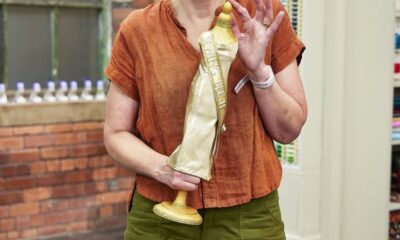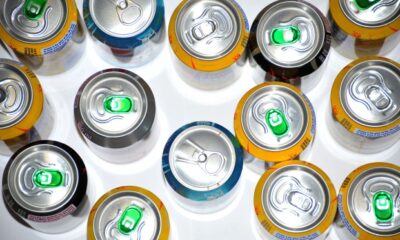Health
Man Survives 38 Days with Transplanted Pig Liver in Landmark Surgery

A 71-year-old man in Anhui, China, has made medical history by living for more than a month with a transplanted pig liver, marking one of the most successful procedures of its kind. The operation, involving a genetically modified organ, showcased significant advancements in xenotransplantation—the practice of transplanting organs from one species to another.
The patient, who had been suffering from liver cancer and severe scarring due to hepatitis B, received the genetically engineered micropig liver last year. After the transplant, the organ functioned normally for a remarkable 38 days before complications due to blood clotting necessitated its removal. Despite this, the individual continued to survive for an additional 171 days, passing away months later from internal bleeding unrelated to the transplant.
Dr. Beicheng Sun, a surgeon at Anhui Medical University and one of the authors of the study, commented on the significance of this case, stating, “This case proves that a genetically engineered pig liver can function in a human for an extended period. It is a pivotal step forward, demonstrating both the promise and the remaining hurdles.”
Implications for Future Transplants
This operation stands out not only because of its success but also as a potential turning point in organ transplantation. The patient’s survival, while not surpassing the record of six months set by a patient with a pig kidney, is notably longer than the previous record for a liver transplant from a pig, which was only 10 days in a brain-dead patient.
Dr. Heiner Wedemeyer, editor of the Journal of Hepatology, remarked, “A new era of transplant has started.” Scientists are optimistic that organs from pigs could become a viable solution for individuals facing life-threatening conditions while waiting for human organ donations. Pigs are similar in size to human organs, and advancements in gene editing could reduce the risk of the human immune system rejecting these organs.
Writing in the journal, Dr. Sun emphasized that further research is necessary to refine these procedures. The hope is that successful xenotransplants could significantly alleviate the shortage of available organs for transplant.
The Organ Donation Crisis
The urgency for alternative organ sources is underscored by the current organ donation crisis. In 2023, just over 4,500 organ transplants were performed in the UK from 2,387 donors, yet more than 400 individuals died while awaiting suitable organs. According to NHS Blood and Transplant, only one percent of people who die annually in the UK do so under circumstances that allow their organs to be donated.
New legislation has shifted the organ donation framework to an “opt-out” system for adults, meaning individuals are presumed to consent unless they specify otherwise. However, the reality remains that families often refuse to allow organ donation, with 60 percent of families declining the use of their loved one’s organs.
Those wishing to register as organ donors can do so online, and health officials have integrated donor registration options into passport and driving license applications to encourage participation. As the medical community continues to explore xenotransplantation, the hope is that innovative solutions can bridge the gap between supply and demand for life-saving organs.
-

 Entertainment1 month ago
Entertainment1 month agoAnn Ming Reflects on ITV’s ‘I Fought the Law’ Drama
-

 Entertainment2 months ago
Entertainment2 months agoKate Garraway Sells £2 Million Home Amid Financial Struggles
-

 Health1 month ago
Health1 month agoKatie Price Faces New Health Concerns After Cancer Symptoms Resurface
-

 Entertainment2 months ago
Entertainment2 months agoKim Cattrall Posts Cryptic Message After HBO’s Sequel Cancellation
-

 Entertainment1 month ago
Entertainment1 month agoWhere is Tinder Swindler Simon Leviev? Latest Updates Revealed
-

 Entertainment2 months ago
Entertainment2 months agoMasterChef Faces Turmoil as Tom Kerridge Withdraws from Hosting Role
-

 Entertainment3 months ago
Entertainment3 months agoSpeculation Surrounds Home and Away as Cast Departures Mount
-

 World1 month ago
World1 month agoCole Palmer’s Mysterious Message to Kobbie Mainoo Sparks Speculation
-

 Entertainment1 month ago
Entertainment1 month agoITV’s I Fought the Law: Unraveling the True Story Behind the Drama
-

 Entertainment3 weeks ago
Entertainment3 weeks agoCaz Crowned Winner of The Great British Sewing Bee, Overjoyed by Triumph
-

 Entertainment2 months ago
Entertainment2 months agoAldi Launches Cozy Autumn Fragrance Range Ahead of Halloween
-

 Entertainment2 months ago
Entertainment2 months agoMarkiplier Addresses AI Controversy During Livestream Response




















